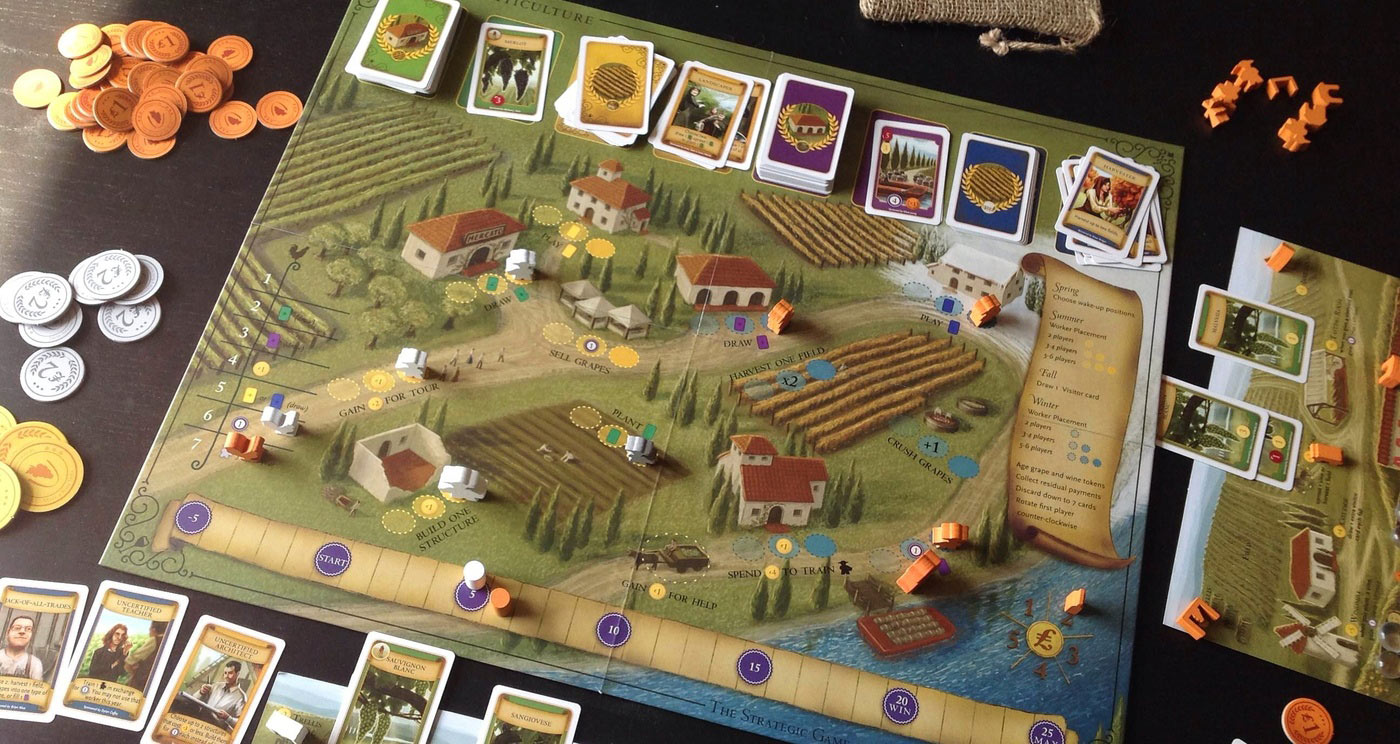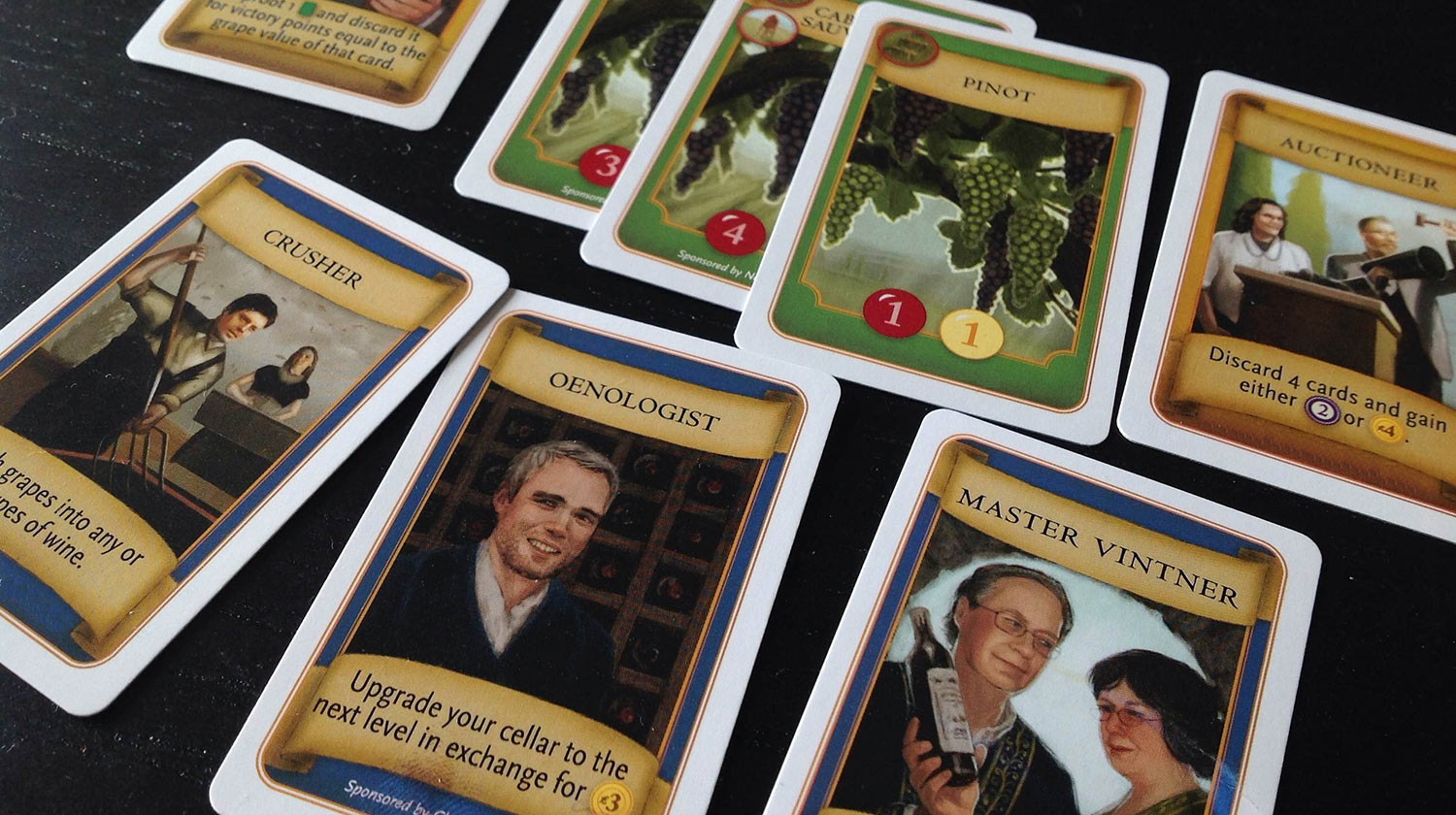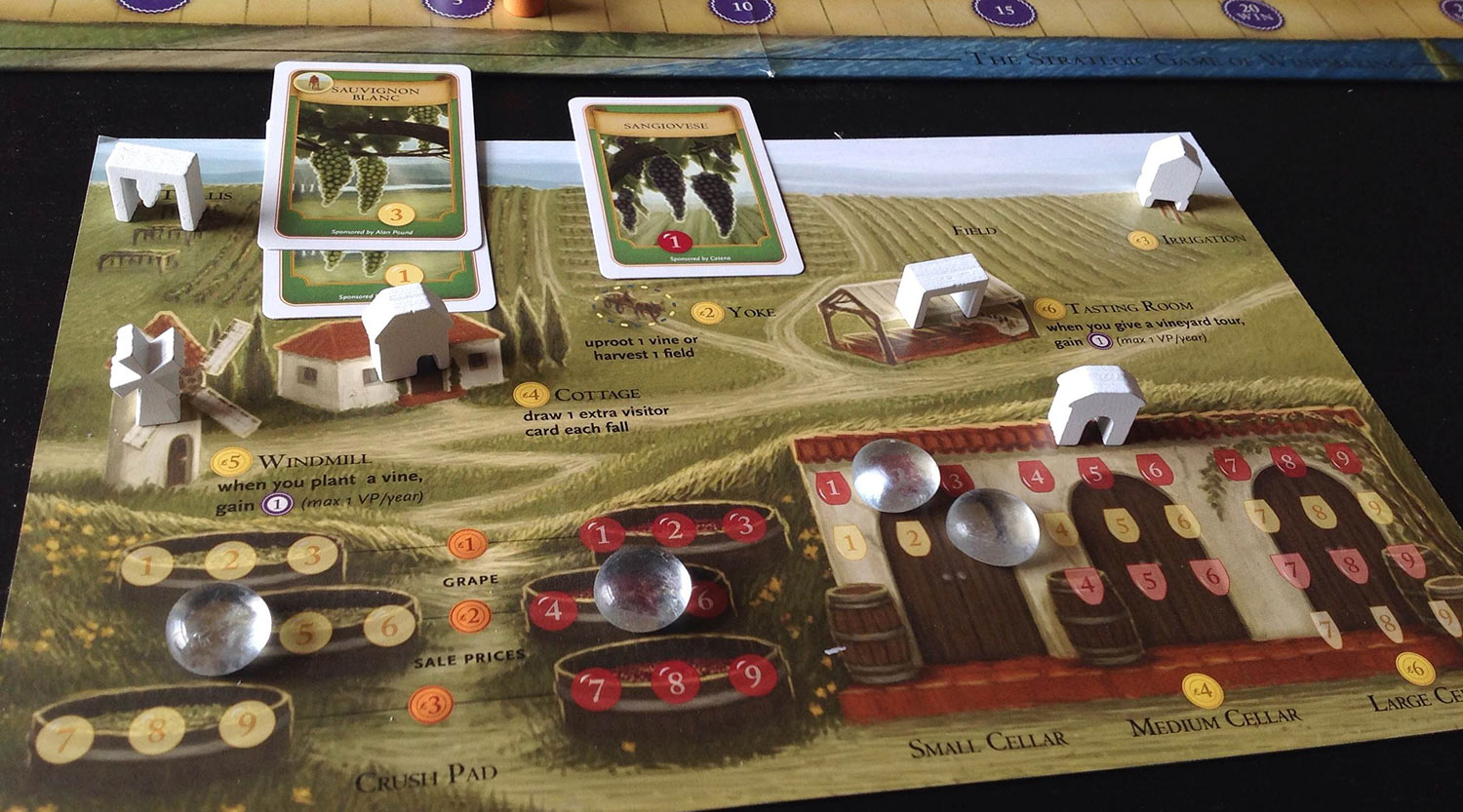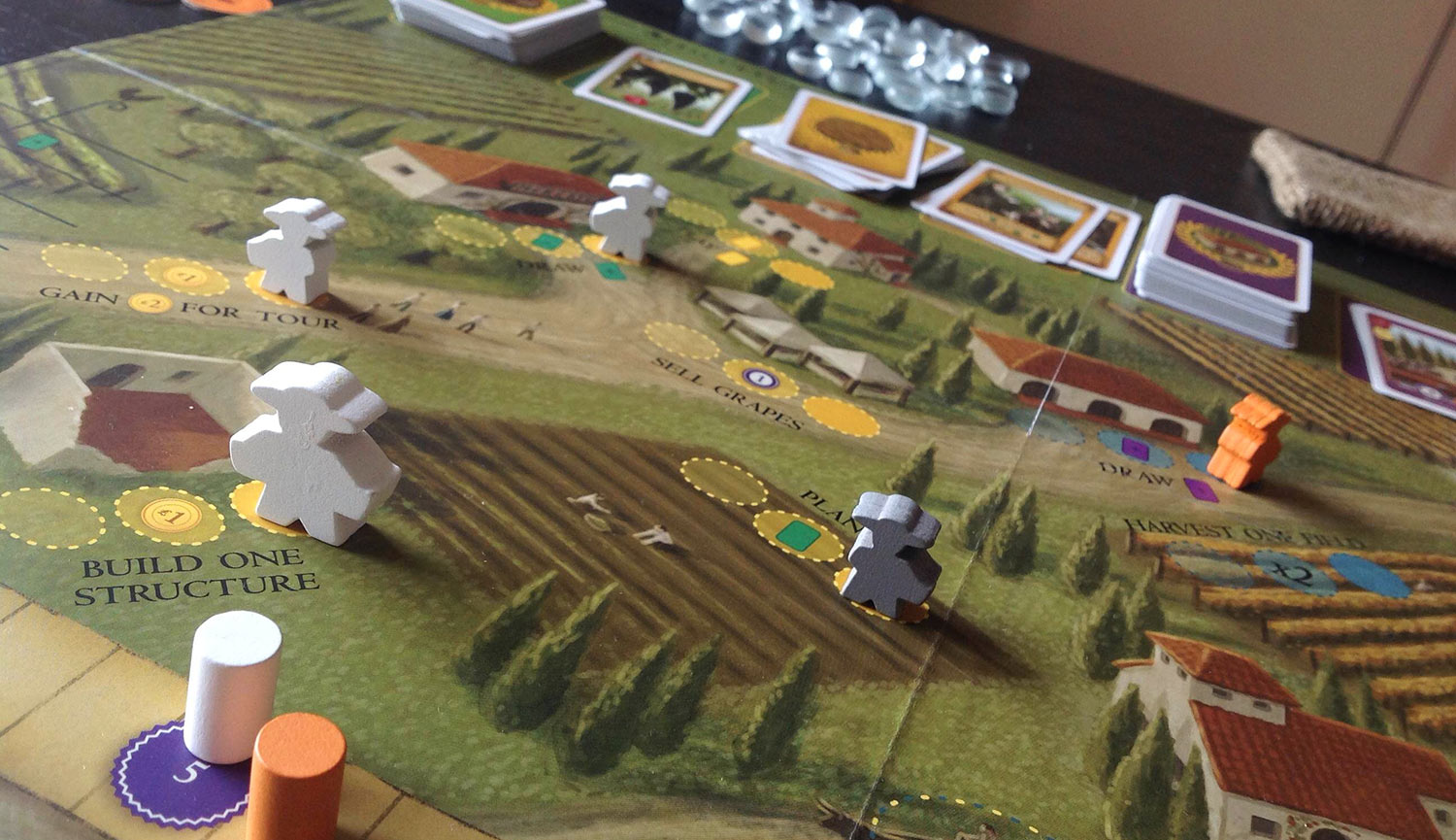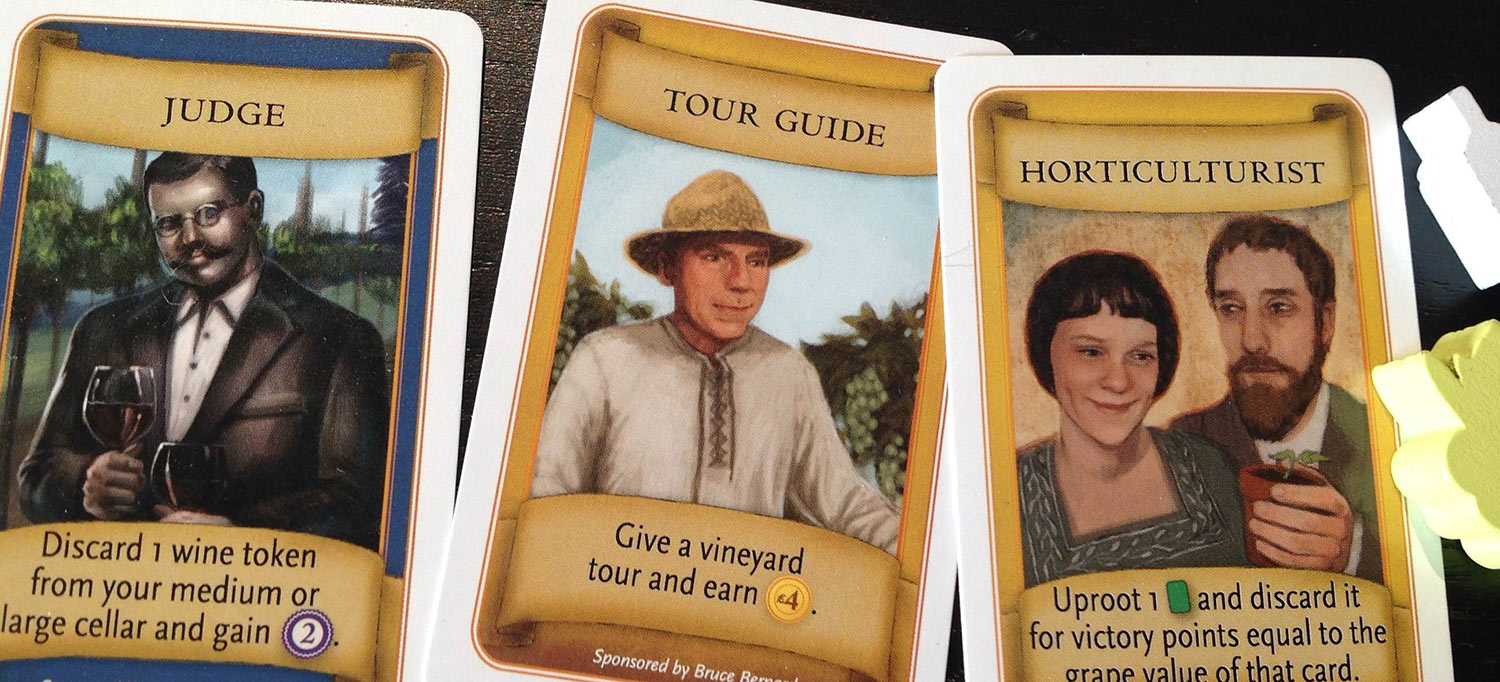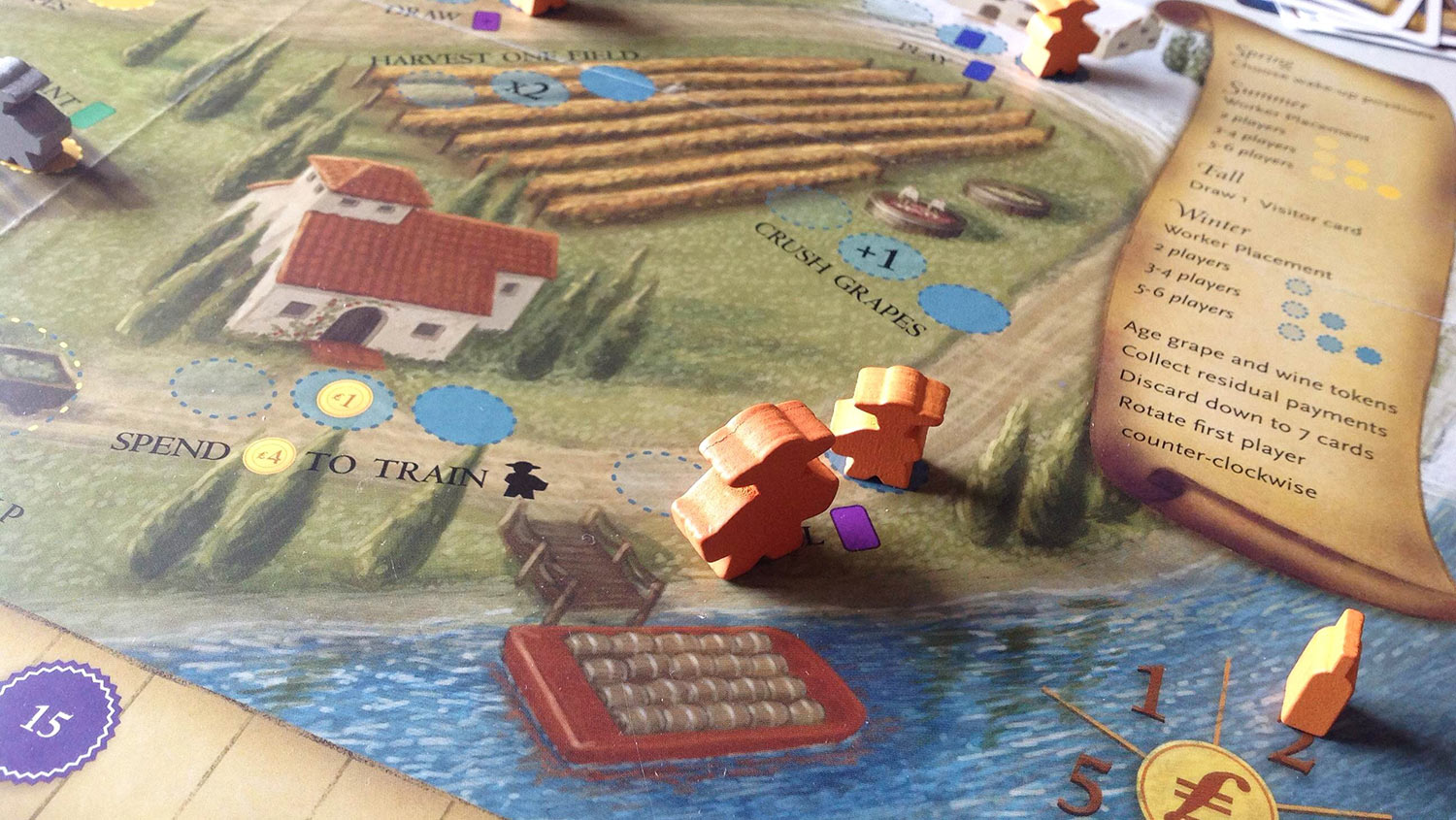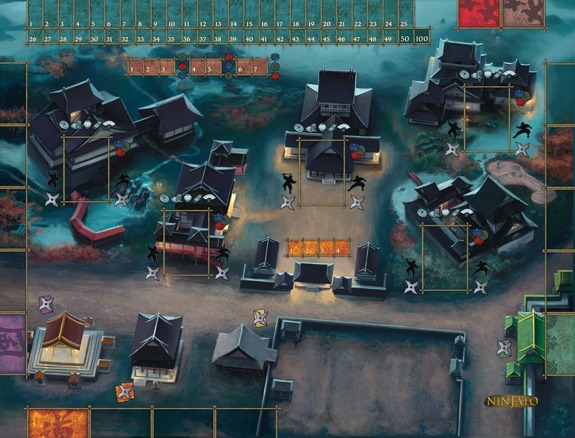Quinns: Readers with their finger on the pulse (of strategic wine-making board games) might be aware of this Kickstarter for Tuscany: Expand the World of Viticulture. Totaling $277,258 at the time of writing, it offers a copy of the much hyped Viticulture, unavailable since the first Kickstarter in 2012, as well as a new, massive Tuscany expansion.
In other words I finally have a reason to review the ludicrously heavy copy of Viticulture which Stonemaier Games sent me a year ago, before triumphantly flinging it out of my window, killing a passerby in my desperation to get it out of my life.
OR WILL I? As you’d imagine from Viticulture’s continued bobbing atop the public consciousness like chunks of cork in a bottle, this game’s really very good.
Viticulture is a worker placement game, a genre you might have seen in our breathless reviews of Caverna or Village. In these games players start with a handful of unsmiling wooden labourers, and take turns dispatching them to claim very, very limited spaces on the board. The appeal here is that at you’re always getting prizes from the game, as well slamming the door for everybody else. It’s cruel, yet polite. Cerebral, yet relaxed.
Viticulture’s a little less relaxed than most, though, because from the start there’s SO MUCH TO DO. Imagine arriving at your new, Italian vinyard. The sun-dappled fields, the air possessing a hint of sage. You could be happy here. A worker sidles up to you.
Worker: We ‘ave, how you say… no wine?
You: Oh. Well, let’s to grow the f*** out of some grapes!
Worker: Signor, we ‘ave no grapes. And if we did, ve would ‘ave no trellis for them, and they would lie on ze ground like a carpet of bollocks. Also, we have no demand for ze wine. And no cellar to store ze wine we are not making for the demand zat does not exist.
You: What?
Worker: What?
Quinns: It’s actually this initial awkwardness that makes Viticulture exciting. Dispatching your workers to plant vines, collect wine orders, harvest grapes, crush grapes, age wine, and finally sell it is so initially laborious that it’s thrilling to witness your engine take off. One player scrimps and saves for a tasting room, so now he’s getting victory points and money with every tour of her winery. Another player gets lucky with the vine cards they draw, and ends up struggling to use all the grapes overflowing in their fields.
Often, the appeal with economic games is in starting from nothing and using your wits to get up to speed quickly, then delighting as you encounter problems entirely of your own devising. Viticulture nails this. Everyone’s jealous of each other, all at once. “Crap, when did he hire all those workers?!” you’re thinking, as one year the central town board becomes packed. Meanwhile, that player with all the workers is doing maths every which way because he’s just seen he can’t afford to expand his cellar. He’s going to have to throw away the booze of the fruits of his labour.
It all just works. The decisions are finely tuned enough that you’re constantly torn between two decisions, even if it’s just picking the space you really want and the space you reckon everybody wants.
Then there are the cards. It’s not just that the vines and wine orders you draw are random, forcing you to adapt to local and wider markets. There are also Summer and Winter visitors to your vinyard, who players draw every turn.
These guys are interesting for a couple of reasons. One, they’re all blatantly modelled after high-tier Kickstarter backers, which you’d figure out for yourself the instant you looked at a hand of them, because they all look so WEIRD. There’s not a visitor in this game who, in real life, wouldn’t have you turning off all the lights and peeking from behind the curtains.
Aesthetic issues aside, these visitors are also interesting because they’re deeply situational. Anyone you draw could be useless, they might be a life buoy thrown to your ailing business, or they could be worth as many VPs as fulfilling an entire wine order.
Stuff like this has been absent from other worker placement games I’ve played precisely because you don’t want somebody to steal the win with a lucky draw, but I still like them. They’re so thematic, conjuring up images of a winter spent with a kind benefactor or a summer with an insufferable wine expert, and often affect everybody at the table. Perhaps you hold a wedding at your vinyard, which gives every player an injection of cash, but gets you prestigious victory points.
Not everything about Viticulture is quite so forgiveable, though. Please, finish your drinks and we’ll finish the tour in my Whinery.
Viticulture has an adorably-themed mechanic where players have to decide when their workers will “wake up”, giving them first shot at the worker placement but losing out on rewards for keeping your employees happy.
The first printing of Viticulture encountered a problem. Spaces on the board were too tight, especially towards the end of the game, when you could get locked out of absolutely vital plays. Expanding your cellar just before a crushing, for example, or selling wine on the last turn of the game. And so deciding when your workers wake up often wasn’t a decision at all, and they’d frequently emerge from their beds each day and sprint down the road as if startled by a fire alarm.
So the second printing of Viticulture, which is what you’d receive, gives everybody one “Grande Worker”. This giant dude is too cool for the principals of worker placement, and can claim the reward of any space he likes, every turn. I played with these because they’re an option in my Kickstarter version as an expansion module, and while they certainly sound less annoying than the inexpert balancing of before, they also means that the single teaspoon of adrenaline the genre had is siphoned out of it.
Never in this game will you smilingly perform that one, devastating “NOOOOOO!” move that immolates another player’s plans, so there’s no point in paying too much attention to what your friends are doing. It turns the game a little more inward, toward that feeling that you’re all sitting an exam together rather than interacting. It’s a hugely fun exam, but you get the idea. You’re not playing, you know?
Finally, the rules for crushing grapes into wine are a touch byzantine and don’t have a quick reference anywhere but in the manual. At best, you’re going to be explaining it twice before the game begins, then twice more after you’ve started. At worst, someone’s going to get The Crusher as a Winter visitor, and with the 2nd printing tweaks affecting both The Crusher himself and the normal rules for crushing, it’s a lot like trying to understand a tax rebate.
In conclusion, then? If you excitedly backed the Tuscany expansion & base game on Kickstarter (which runs for another 13 days), you can probably be happy with your decision. This is a fine game, made with love, and if you and your friends are after some intense, impersonal strategy, Viticulture will be as fine company as any bottle of wine. And that new expansion’s highly unlikely to make it worse.
But if you’ve only got the budget to buy games rarely? You’re just so spoiled for choice. I’d pick up Village or Keyflower for your slice of pastoralism, or if you wanted something brain-burny, I’d rather play Tzolk’in or anything by Stefan Feld. Or if you’d just like to know more about wine? I honestly know more about cleaning up wine stains than I do about wine, but I really enjoyed SOMM, a documentary about the hardest exam in wine-tasting and some of the strangely-shaped egos who train for it.

